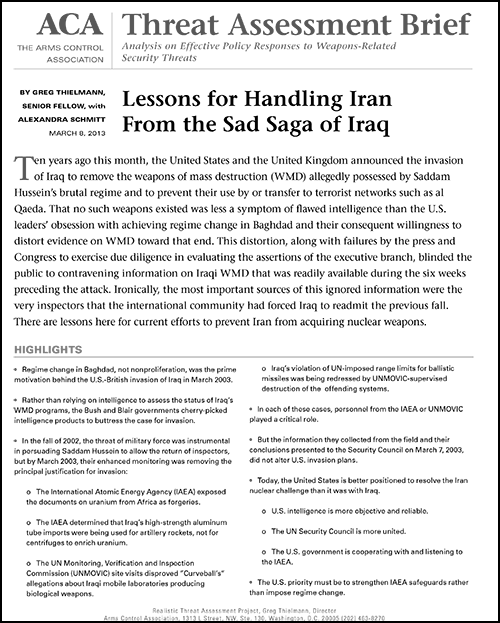By Greg Thielmann and Alexandra Schmitt
March 2013
 |
| Download PDF |
Ten years ago today, President George W. Bush said in a radio address to the nation: "It is clear that Saddam Hussein is still violating the demands of the United Nations by refusing to disarm." Eleven days later, he announced the invasion of Iraq to remove the weapons of mass destruction (WMD) allegedly possessed by Hussein's brutal regime and to prevent their use by or transfer to terrorist networks such as al Qaeda. That no such weapons existed was less a symptom of flawed intelligence than the U.S. leaders' obsession with achieving regime change in Baghdad and their consequent willingness to distort evidence on WMD toward that end.
This distortion, along with failures by the press and Congress to exercise due diligence in evaluating the assertions of the executive branch, blinded the public to contravening information on Iraqi WMD that was readily available during the six weeks preceding the attack.
Ironically, the most important sources of this ignored information were the very inspectors that the international community had forced Iraq to readmit the previous fall. There are lessons here for current efforts to prevent Iran from acquiring nuclear weapons.
